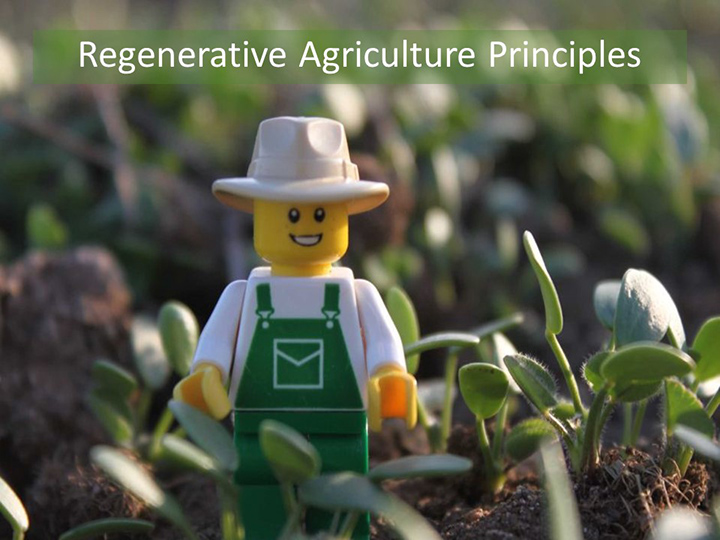
Regenerative Agriculture Series of Workshops Our soil, air, water and ecosystems are inextricably bound, and the people who interact with these ecosystems leave long-lasting impressions on the landscape. Regenerative agriculture recognizes that soil is a living organism and is composed of diverse species working in synergy to create an ecosystem that can grow healthier plants and food, retain more water, and better absorb carbon that can help reverse the impacts of climate change. In short, if humans take care of Earth’s soil, the environment thrives. Healthy soils look and behave like giant sponges, holding on to water when times are dry, and releasing it slowly when it is in excess. As healthier roots are established, the microbes in the soil become more naturally resilient to drought, reducing the amount of irrigation needed. In an age in which climate change is limiting available water supplies, increasing our water efficiency (both irrigation efficiency and rainwater capture efficiency) is a critical component to facing the challenges ahead. Attendees learn about the principles of regenerative agriculture both in farm settings and in more urban/suburban environments.
- Learn how to minimize disturbances: Limit or eliminate tillage, physical compaction and use of chemicals
- Plant intensively to maintain living roots: Keeping cover crops or compost in the soil at all times helps provide vital nutrients and reduce erosion and water runoff
- Promote biodiversity: Diversity of plants, insects, wildlife and microbes helps make the ecosystem more resilient to pests and diseases.
- This program is targeted to Property-owners, Professionals, and Regulators of watersheds with agricultural production
